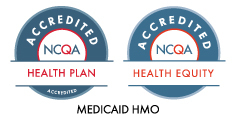
Get Care
Community Supports
Community Supports can help you with housing, getting food after a hospital discharge, hospital discharge support and more.
Read more about what these services are, who can get them, and when they will be available in your area.
What are Community Supports?
Community Supports are other services for Medi-Cal members that may not include direct medical care. The Alliance offers Community Supports to help members with complex health issues. These health issues are often caused or made worse by lack of food, housing or transportation.
Note: If you live in Mariposa or San Benito County, you can get continuity of care for Community Supports. This means that you can keep getting a Community Support that you were receiving, even if it is not offered right now by the Alliance.
Read more about each Community Support below.
Housing
Housing Deposits assist with identifying, coordinating, securing or funding one-time services and modifications necessary to enable a person to establish a basic household that do not constitute room and board, such as:
- Security deposits required to obtain a lease on an apartment or home.
- Set-up fees/deposits for utilities or service access and utility arrearages.
- First month coverage of utilities, including but not limited to telephone, gas, electricity, heating and water.
- First month’s and last month’s rent as required by landlord for occupancy.
- Services necessary for the individual’s health and safety, such as pest eradication and one-time cleaning prior to occupancy.
Goods such as an air conditioner or heater, and other medically necessary adaptive aids and services, designed to preserve an individuals’ health and safety in the home such as hospital beds, Hoyer lifts, air filters, specialized cleaning or pest control supplies etc., that are necessary to ensure access and safety for the individual upon move-in to the home.
The services provided should be based on individualized assessment of needs and documented in the individualized housing support plan. Individuals may require and access only a subset of the services listed above.
The services provided should utilize best practices for members who are experiencing homelessness and who have complex health, disability and/or behavioral health conditions including Housing First, Harm Reduction, Progressive Engagement, Motivational Interviewing and Trauma-Informed Care.
Services do not include the provision of room and board or payment of ongoing rental costs beyond the first and last month’s coverage as noted above.
This service provides tenancy and sustaining services, with a goal of maintaining safe and stable tenancy once housing is secured. Services include:
- Providing early identification and intervention for behaviors that may jeopardize housing, such as late rental payment, hoarding, substance use and other lease violations.
- Education and training on the role, rights and responsibilities of the tenant and landlord.
- Coaching on developing and maintaining key relationships with landlords/property managers with a goal of fostering successful tenancy.
- Coordination with the landlord and case management provider to address identified issues that could impact housing stability.
- Assistance in resolving disputes with landlords and/or neighbors to reduce risk of eviction or other adverse action including developing a repayment plan or identifying funding in situations in which the member owes back rent or payment for damage to the unit.
- Advocacy and linkage with community resources to prevent eviction when housing is or may potentially become jeopardized.
- Assisting with benefits advocacy, including assistance with obtaining identification and documentation for SSI eligibility and supporting the SSI application process. Such service can be subcontracted out to retain needed specialized skillset.
- Assistance with the annual housing recertification process.
- Coordinating with the tenant to review, update and modify their housing support and crisis plan on a regular basis to reflect current needs and address existing or recurring housing retention barriers.
- Continuing assistance with lease compliance, including ongoing support with activities related to household management.
- Health and safety visits, including unit habitability inspections.
- Other prevention and early intervention services identified in the crisis plan that are activated when housing is jeopardized (e.g., assisting with reasonable accommodation requests that were not initially required upon move-in).
- Providing independent living and life skills including assistance with and training on budgeting, financial literacy and connection to community resources.
The services may involve coordination with other entities to ensure the individual has access to supports needed to maintain successful tenancy. Final program guidelines should adopt, as a standard, the demonstrated need to ensure seamless serving to members experiencing homelessness entering the Housing Tenancy and Sustaining Services Community Support.
Services do not include the provision of room and board or payment of rental costs.
Housing transition services assist members with obtaining housing and include:
- Conducting a tenant screening and housing assessment that identifies the member’s preferences and barriers related to successful tenancy. The assessment may include collecting information on the member’s housing needs, potential housing transition barriers and identification of housing retention barriers.
- Developing an individualized housing support plan based upon the housing assessment that addresses identified barriers, includes short- and long-term measurable goals for each issue, establishes the member’s approach to meeting the goal and identifies when other providers or services, both reimbursed and not reimbursed by Medi-Cal, may be required to meet the goal.
- Searching for housing and presenting options.
- Assisting in securing housing, including the completion of housing applications and securing required documentation (e.g., Social Security card, birth certificate, prior rental history).
- Assisting with benefits advocacy, including assistance with obtaining identification and documentation for SSI eligibility and supporting the SSI application process. Such service can be subcontracted out to retain needed specialized skillset.
- Identifying and securing available resources to assist with subsidizing rent (such as HUD’s Housing Choice Voucher Program (Section 8), or state and local assistance programs) and matching available rental subsidy resources to members.
- Identifying and securing resources to cover expenses, such as security deposit, moving costs, adaptive aids, environmental modifications, moving costs and other one-time expenses.
- Assisting with requests for reasonable accommodation, if necessary.
- Landlord education and engagement.
- Ensuring that the living environment is safe and ready for move-in.
- Communicating and advocating on behalf of the member with landlords.
- Assisting in arranging for and supporting the details of the move.
- Establishing procedures and contacts to retain housing, including developing a housing support crisis plan that includes prevention and early intervention services when housing is jeopardized.
- Identifying, coordinating, securing, or funding non-emergency, non-medical transportation to assist members’ mobility to ensure reasonable accommodations and access to housing options prior to transition and on move in day.
- Identifying, coordinating, securing or funding environmental modifications to install necessary accommodations for accessibility (see Environmental Accessibility Adaptations Community Support).
Members may require and access only a subset of the services listed above.
The services provided should be based on individualized assessment of needs and documented in the individualized housing support plan. Members may require and access only a subset of the services listed above.
The services provided should utilize best practices for members who are experiencing homelessness and who have complex health, disability and/or behavioral health conditions. Examples of best practices include Housing First Harm Reduction, Progressive Engagement, Motivational Interviewing and Trauma-Informed Care.
Assistance Line, call 800-735-2929 (TTY: Dial 711).
The services may involve additional coordination with other entities to ensure the individual has access to supports needed for successful tenancy. These entities may include County Health, Public Health, Substance Use, Mental Health and Social Services Departments; County and City Housing Authorities; Continuums of Care and Coordinated Entry System; Sheriff’s Department and Probation Officers, as applicable and to the extent possible; local legal service programs, community-based organizations housing providers, local housing agencies and housing development agencies. For members who will need rental subsidy support to secure permanent housing, the services will require close coordination with local Coordinated Entry Systems, homeless services authorities, public housing authorities and other operators of local rental subsidies. Some housing assistance (including recovery residences and emergency assistance or rental subsidies for Full-Service Partnership Members) is also funded by county behavioral health agencies, and Medi-Cal managed care plans and their contracted Community Supports providers.
Final program guidelines should adopt, as a standard, the demonstrated need to ensure seamless service to members experiencing homelessness entering the Housing Transition Navigation Services Community Support. Services do not include the provision of room and board or payment of rental costs. Coordination with local entities is crucial to ensure that available options for room and board or rental payments are also coordinated with housing services and supports.
Recuperative Care, also referred to as medical respite care, is short-term residential care for individuals who no longer require hospitalization, but still need to heal from an injury or illness (including behavioral health conditions) and whose condition would be exacerbated by an unstable living environment. An extended stay in a recovery care setting allows individuals to continue their recovery and receive post-discharge treatment while obtaining access to primary care, behavioral health services, case management and other supportive social services, such as transportation, food and housing.
At a minimum, the service will include interim housing with a bed and meals and ongoing monitoring of the individual’s ongoing medical or behavioral health condition (e.g., monitoring of vital signs, assessments, wound care, medication monitoring). Based on individual needs, the service may also include:
- Limited or short-term assistance with Instrumental Activities of Daily Living and/or ADLs.
- Coordination of transportation to post-discharge appointments.
- Connection to any other ongoing services an individual may require including mental health and substance use disorder services.
- Support in accessing benefits and housing.
- Gaining stability with case management relationships and programs.
Recuperative Care is primarily used for those individuals who are experiencing homelessness or those with unstable living situations who are too ill or frail to recover from an illness (physical or behavioral health) or injury in their usual living environment, but are not otherwise ill enough to be in a hospital.
The services provided to an individual while in recuperative care should not replace or be duplicative of the services provided to members utilizing the Enhanced Care Management program. Recuperative Care may be utilized in conjunction with other housing Community Supports. Whenever possible, other available housing Community Supports should be provided to members onsite in the recuperative care facility. When enrolled in Enhanced Care Management, Community Supports should be managed in coordination with Enhanced Care Management providers.
Short-Term Post-Hospitalization Housing provides members who do not have a residence and who have high medical or behavioral health needs with the opportunity to continue their medical/psychiatric/substance use disorder recovery immediately after exiting an inpatient hospital (either acute or psychiatric or Chemical Dependency and Recovery hospital), residential substance use disorder treatment or recovery facility, residential mental health treatment facility, correctional facility, nursing facility or recuperative care and avoid further utilization of State plan services.
This setting must provide individuals with ongoing supports necessary for recuperation and recovery such as gaining (or regaining) the ability to perform activities of daily living, receiving necessary medical/psychiatric/substance use disorder care, case management, and beginning to access other housing supports such as Housing Transition Navigation.
This setting may include an individual or shared interim housing setting, where residents receive the services described above.
Members must be offered Housing Transition Navigation supports during the period of Short-Term Post-Hospitalization Housing to prepare them for transition from this setting. These services should include a housing assessment and the development of an individualized housing support plan to identify preferences and barriers related to successful housing tenancy after Short-Term Post-Hospitalization Housing.
Meals
Malnutrition and poor nutrition can lead to devastating health outcomes, higher utilization and increased costs, particularly among members with chronic conditions. Meals help individuals achieve their nutrition goals at critical times to help them regain and maintain their health. Results include improved member health outcomes, lower hospital readmission rates, a well-maintained nutritional health status and increased member satisfaction.
- Meals delivered to the home immediately following discharge from a hospital or nursing home when members are most vulnerable to readmission.
- Medically Tailored Meals: meals provided to the member at home that meet the unique dietary needs of those with chronic diseases.
- Medically Tailored Meals are tailored to the medical needs of the member by a registered dietitian (RD) or other certified nutrition professional, reflecting appropriate dietary therapies based on evidence-based nutritional practice guidelines to address medical diagnoses, symptoms, allergies, medication management and/or side effects to ensure the best possible nutrition-related health outcomes.
- Medically supportive food and nutrition services, including medically tailored groceries.
- Behavioral, cooking and/or nutrition education is included when paired with direct food assistance as enumerated above.
Other
Environmental Accessibility Adaptations (EAAs, also known as Home Modifications) are physical adaptations to a home that are necessary to ensure the health, welfare and safety of the individual, or enable the individual to function with greater independence in the home, without which the member would require institutionalization. Examples of environmental accessibility adaptions include:
- Ramps and grab-bars to assist members in accessing the home.
- Doorway widening for members who require a wheelchair.
- Stair lifts.
- Making a bathroom and shower wheelchair accessible (e.g., constructing a roll-in shower).
- Installation of specialized electric and plumbing systems that are necessary to accommodate the medical equipment and supplies of the member.
- Installation and testing of a Personal Emergency Response System (PERS) for members who are alone for significant parts of the day without a caregiver and who otherwise require routine supervision (including monthly service costs, as needed).
The services are available in a home that is owned, rented, leased or occupied by the member. For a home that is not owned by the member, the member must provide written consent from the owner for physical adaptations to the home or for equipment that is physically installed in the home (e.g., grab bars, chair lifts, etc.).
When authorizing environmental accessibility adaptations as a Community Support, the managed care plan must receive and document an order from the member’s current primary care physician or other health professional specifying the requested equipment or service as well as documentation from the provider of the equipment or service describing how the equipment or service meets the medical needs of the member, including any supporting documentation describing the efficacy of the equipment where appropriate. Brochures will suffice in showing the purpose and efficacy of the equipment; however, a brief written evaluation specific to the member describing how and why the equipment or service meets the needs of the member will still be necessary.
The managed care plan must also receive and document:
- A physical or occupational therapy evaluation and report to evaluate the medical necessity of the requested equipment or service unless the managed care plan determines it is appropriate to approve without an evaluation. This should typically come from an entity with no connection to the provider of the requested equipment or service. The physical or occupational therapy evaluation and report should contain at least the following:
- An evaluation of the member and the current equipment needs specific to the member, describing how/why the current equipment does not meet the needs of the member.
- An evaluation of the requested equipment or service that includes a description of how/why it is necessary for the member and reduces the risk of institutionalization. This should also include information on the ability of the member and/or the primary caregiver to learn about and appropriately use any requested item.
- A description of similar equipment used either currently or in the past that has demonstrated to be inadequate for the member and a description of the inadequacy.
- If possible, a minimum of two bids from appropriate providers of the requested service, which itemize the services, cost, labor and applicable warranties.
- That a home visit has been conducted to determine the suitability of any requested equipment or service. The assessment and authorization for EAAs must take place within a 90-day time frame beginning with the request for the EAA, unless more time is required to receive documentation of homeowner consent, or the individual receiving the service requests a longer time frame.
Personal Care Services and Homemaker Services are provided for individuals who need assistance with Activities of Daily Living (ADLs) such as bathing, dressing, toileting, ambulation or feeding. Personal Care Services can also include assistance with Instrumental Activities of Daily Living (IADLs) such as meal preparation, grocery shopping and money management. It includes services provided through the In-Home Support Services (In-Home Supportive Services) program, including house cleaning, meal preparation, laundry, grocery shopping, personal care services (such as bowel and bladder care, bathing, grooming and paramedical services), accompaniment to medical appointments and protective supervision for the mentally impaired. Services also include help with tasks such as cleaning and shopping, laundry and grocery shopping. Personal Care and Homemaker programs aid individuals who could otherwise not remain in their homes.
The Personal Care and Homemaker Services Community Support can be utilized:
- Above and beyond any approved county In-Home Supportive Services hours, when additional hours are required and if In-Home Supportive Services benefits are exhausted.
- As authorized during any In-Home Supportive Services waiting period (member must be already referred to In-Home Supportive Services); this approval time period includes services prior to and up through the In-Home Supportive Services application date.
- For members not eligible to receive In-Home Supportive Services, to help avoid a short-term stay in a skilled nursing facility (not to exceed 60 days).
Similar services available through In-Home Supportive Services should always be utilized first. These Personal Care and Homemaker services should only be utilized if appropriate and if additional hours/supports are not authorized by In-Home Supportive Services.
Respite Services are provided to caregivers of members who require intermittent temporary supervision. The services are provided on a short-term basis because of the absence or need for relief of those persons who normally care for and/or supervise them and are non-medical in nature. This service is distinct from medical respite/recuperative care and is rest for the caregiver only. Respite Services can include any of the following:
- Services provided by the hour on an episodic basis because of the absence of or need for relief for those persons normally providing the care to individuals.
- Services provided by the day/overnight on a short-term basis because of the absence of or need for relief for those persons normally providing the care to individuals.
- Services that attend to the member’s basic self-help needs and other activities of daily living, including interaction, socialization and continuation of usual daily routines that would ordinarily be performed by those persons who normally care for and/or supervise them.
Home Respite Services are provided to the member in his or her own home or another location being used as the home.
Facility Respite Services are provided in an approved out-of-home location.
Respite should be made available when it is useful and necessary to maintain a person in their own home and to preempt caregiver burnout to avoid institutional services for which the Medi-Cal managed care plan is responsible.
Sobering centers are alternative destinations for individuals who are found to be publicly intoxicated (due to alcohol and/or other drugs) and would otherwise be transported to the emergency department or jail. Sobering centers provide these individuals, primarily those who are homeless or those with unstable living situations, with a safe, supportive environment to become sober. Sobering centers provide services such as medical triage, lab testing, a temporary bed, rehydration and food service, treatment for nausea, wound and dressing changes, shower and laundry facilities, substance use education and counseling, navigation and warm hand-offs for additional substance use services or other necessary health care services, and homeless care support services.
- When utilizing this service, direct coordination with the county behavioral health agency is required and warm hand-offs for additional behavioral health services are strongly encouraged.
- The service also includes screening and linkage to ongoing supportive services such as follow-up mental health and substance use disorder treatment and housing options, as appropriate.
- This service requires partnership with law enforcement, emergency personnel and outreach teams to identify and divert individuals to Sobering Centers. Sobering Centers must be prepared to identify members with emergent physical health conditions and arrange transport to a hospital or appropriate source of medical care.
- The services provided should utilize best practices for members who are experiencing homelessness and who have complex health and/or behavioral health conditions including Housing First, Harm Reduction, Progressive Engagement, Motivational Interviewing and Trauma-Informed Care.
Who can get Community Supports?
You can be referred to Community Supports by your ECM provider, primary doctor, social services providers and others. You or your family may also ask to get Community Supports.
How can I get Community Supports?
To start the process, please fill out the form for the service you are interested in:
- Member Housing Referral Form
- Member Medically Tailored Meals Referral Form
- Member Personal Care and Homemaker Services and Respite Services Referral Form
- Environmental Accessibility and Adaptability (EAA) Member Referral Form
Members can also call the Alliance Member Services Department at 800-700-3874 from 8 a.m. to 5:30 p.m., Monday through Friday.
If you need language assistance, we have a special telephone line to get an interpreter who speaks your language at no cost to you. For the Hearing or Speech Assistance Line, call 800-735-2929 (TTY: Dial 711).
Contact Member Services
- Monday through Friday, from 8 a.m. to 5:30 p.m.
- Phone: 800-700-3874
- Deaf and Hard of Hearing Assistance
TTY: 800-735-2929 (Dial 711)
- Monday through Friday, from 8 a.m. to 5:30 p.m.
- Phone: 800-700-3874
- Deaf and Hard of Hearing Assistance
TTY: 800-735-2929 (Dial 711)
Accessing Alliance Services
Resources
Apply for ECM
Apply for Community Supports
Latest News

Get help with immigration and health care

Behavioral health care has moved to the Alliance

California’s update on your Medi-Cal info and privacy

June 2025 – Member Newsletter Alternative Formats
Contact us | Toll free: 800-700-3874



